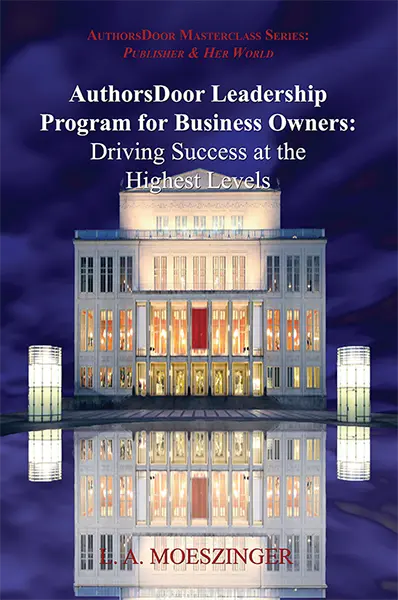The Chief Executive Officer (CEO) stands at the pinnacle of an organization’s hierarchy, wielding substantial influence over its strategic, operational, and cultural realms. As the highest-ranking executive, the CEO’s decisions and leadership style dictate the organization’s direction, health, and overall success. This comprehensive exploration delves into the extensive responsibilities of a CEO, the challenges they face, and the profound impact their effective leadership can have on an organization.
Defining the Role of a CEO
The CEO is often seen as the ultimate decision-maker within an organization. Appointed by the board of directors and accountable to the shareholders, the CEO is responsible for setting strategic goals, spearheading growth initiatives, and ensuring operational excellence across all levels of the organization.
Core Responsibilities of a CEO
- Strategic Leadership: At the heart of the CEO’s responsibilities is strategic planning. This involves setting the company’s vision and strategic goals, identifying new business opportunities, and ensuring these align with the long-term objectives of the organization.
- Operational Oversight: Beyond strategic thinking, CEOs oversee daily operations, ensuring that the company remains on track to meet its goals. This includes managing senior executives, aligning various departmental strategies with overall business objectives, and optimizing operational efficiency.
- Financial Management: While CFOs manage the specifics, CEOs oversee broader financial health, engaging in major financial decisions, investment strategies, and ensuring resources are allocated efficiently to maximize profitability.
- Stakeholder Engagement: A CEO must effectively communicate and maintain relationships with all stakeholders, including investors, board members, employees, and customers. This role involves negotiation, conflict resolution, and public speaking.
- Culture and Human Resources: A CEO greatly influences organizational culture. They set the tone for leadership style, workplace ethics, and employee engagement, directly impacting recruitment, retention, and the overall workplace environment.
- Innovation and Technology: In a rapidly evolving business landscape, a CEO must also be an advocate for innovation. This means staying ahead of technological advancements, fostering a culture of innovation, and integrating new technologies to maintain competitive edge.
Challenges Confronting CEOs
- Navigating Globalization: Global market dynamics can present varied challenges, from international competition to cross-cultural management and compliance with foreign regulations.
- Technological Adaptation: The rapid pace of technological change requires CEOs to continually adapt their strategies and operations, integrating cutting-edge technologies to stay relevant.
- Economic Fluctuations: Economic downturns and market instability demand that CEOs make swift, strategic decisions to mitigate risks and capitalize on emerging opportunities.
- Regulatory Compliance: Navigating the complex web of local and international regulations poses a constant challenge, requiring diligent legal and ethical compliance.
- Crisis Management: From reputational damage to operational disruptions, a CEO must be adept at managing crises, making decisive actions that will safeguard the organization’s longevity and reputation.
The Impact of Effective CEO Leadership
- Driving Growth: Effective CEOs are visionaries who not only envision growth but actively drive the organization towards it through strategic initiatives and robust market positioning.
- Building Corporate Culture: The CEO’s leadership style significantly shapes the organization’s culture, influencing morale, productivity, and employee satisfaction, which are critical for long-term success.
- Enhancing Stakeholder Relations: Through strategic communications and transparency, a CEO builds trust and confidence among all stakeholders, securing their buy-in and fostering a stable business environment.
- Promoting Sustainability and Ethics: Modern CEOs are increasingly expected to prioritize sustainable practices and ethical considerations in their business strategies, aligning profit with broader social and environmental responsibilities.
Conclusion: The Role of the Chief Executive Officer
The role of the CEO is both broad and demanding, requiring a balance of strategic insight, operational expertise, and exemplary leadership qualities. By effectively navigating the complexities of this role, CEOs not only drive their organizations towards financial success but also shape their cultural and ethical frameworks. In doing so, they not only achieve business objectives but also contribute to the well-being of their employees, the community, and the larger environment, setting a standard for future generations of leadership.
___________________________________________
Take Your Author Career to the Next Level!
Are you ready to transform your writing journey and leadership skills? Subscribe to the AuthorsDoor Leadership Program Newsletter today! Receive exclusive insights, tips, and strategies directly to your inbox that are tailored to help authors succeed. Whether you’re looking to improve your marketing, enhance your writing, or lead in the literary community, our newsletter has you covered.
Subscribe Now and start leading the way in your authorial pursuits with the support and guidance from AuthorsDoor!
Connect with Fellow Authors on Facebook!
Elevate your writing and marketing strategies by joining our vibrant community on the AuthorsDoor Group Facebook page. Dive deeper and gain exclusive access by becoming a member of the AuthorsDoor Strategy Forum. Our groups are designed to foster collaboration, share industry insights, and provide support as you navigate the world of publishing.
Like our Page and Join our Group to tap into a network of dynamic authors and gain the competitive edge you need to succeed!
Stay Connected with AuthorsDoor on Social Media!
For real-time updates, exclusive tips, and a behind-the-scenes look at the world of writing and publishing, make sure to follow us on our social media channels. Connect with us at @AuthorsDoor for general insights and @AuthorsDoor1 for specialized strategies that can revolutionize the way you approach writing and marketing your books.
Follow @AuthorsDoor and Follow @AuthorsDoor1 today to enhance your authorial journey with the latest trends and tips from industry experts!
___________________________________________
Related Entries:
Advanced Public Relations Strategies for Modern Businesses
Related Topics:
Visit our website at www.AuthorsDoor.com and our blog site at www.AuthorsRedDoor.com as you continue your author-publisher journey.


